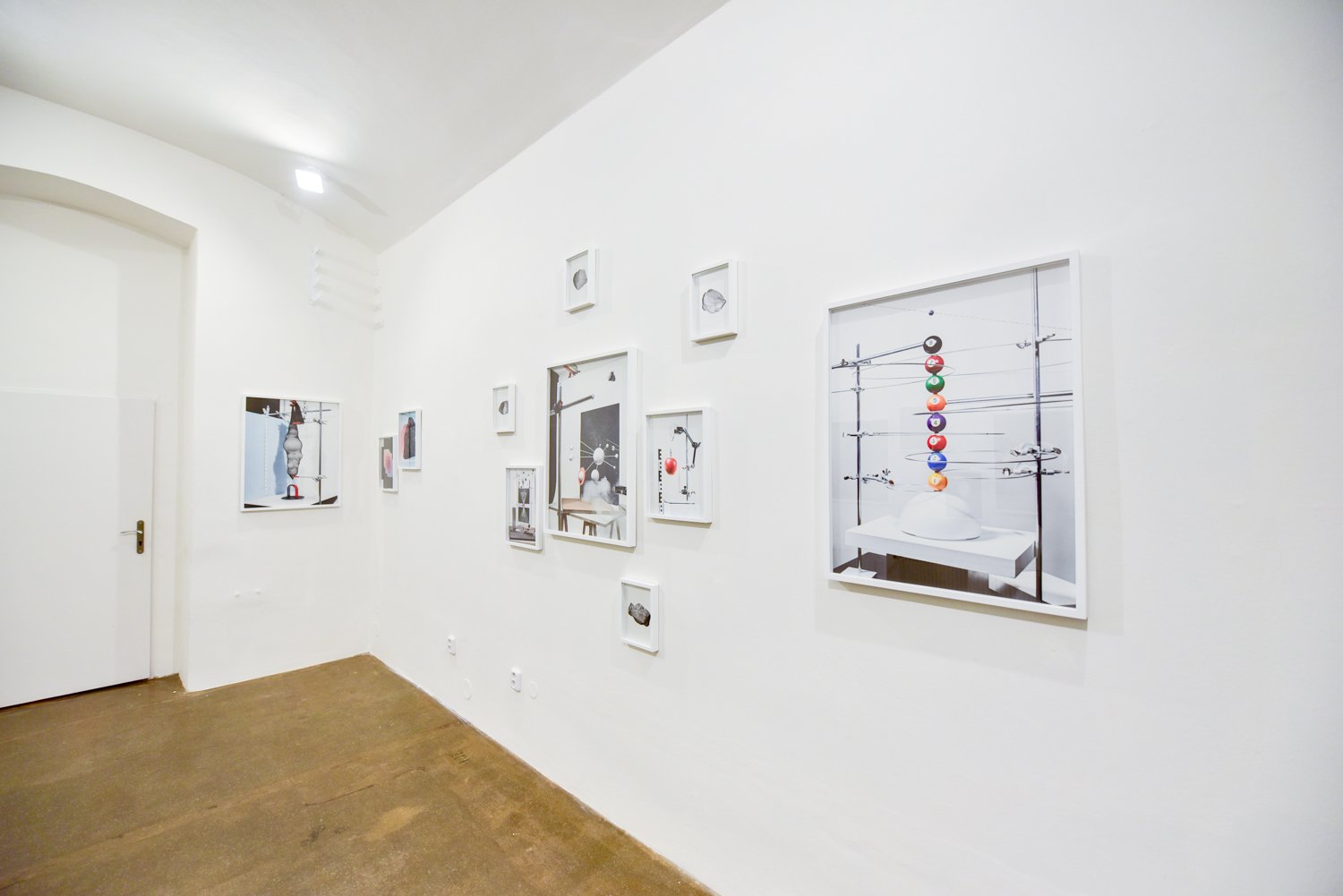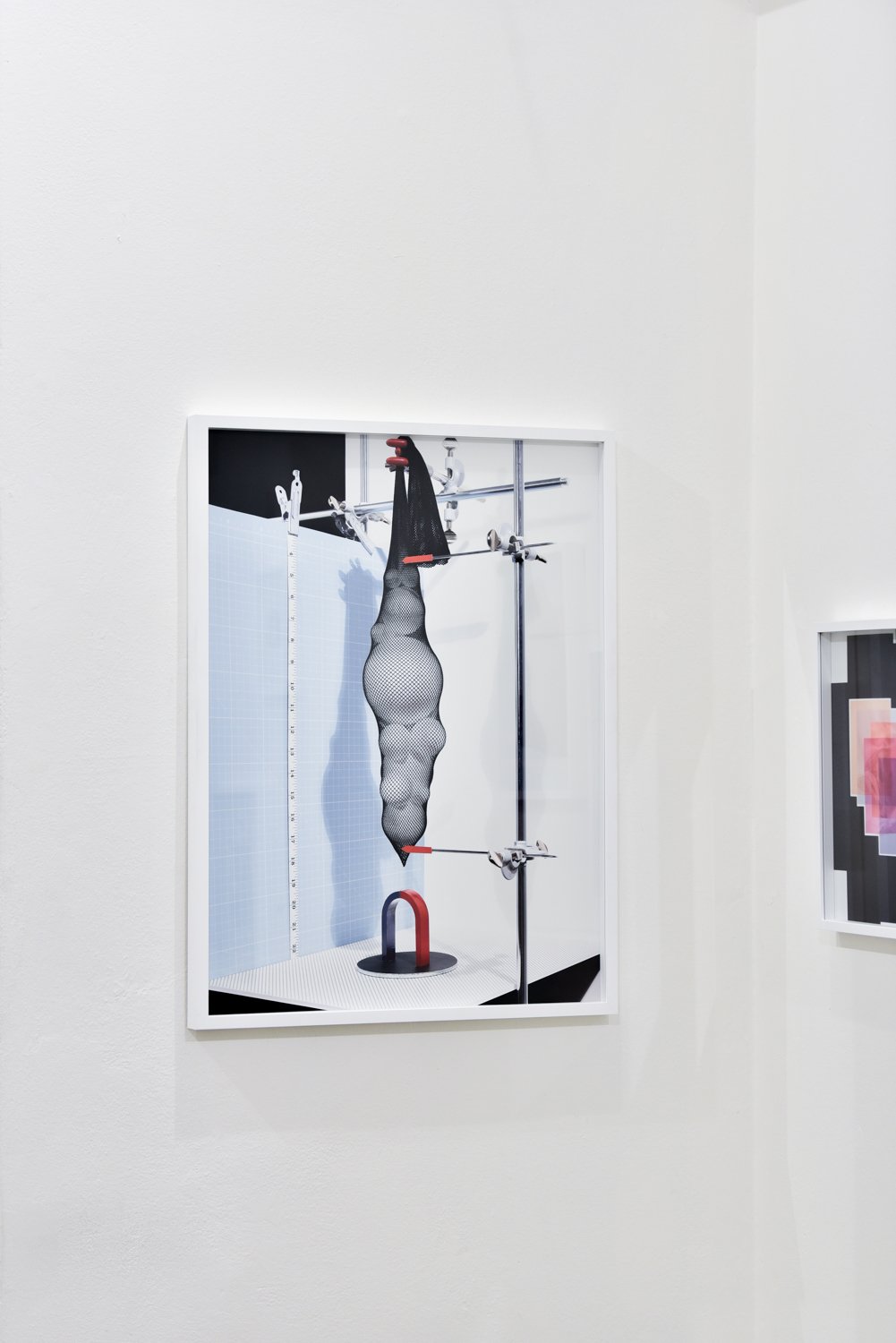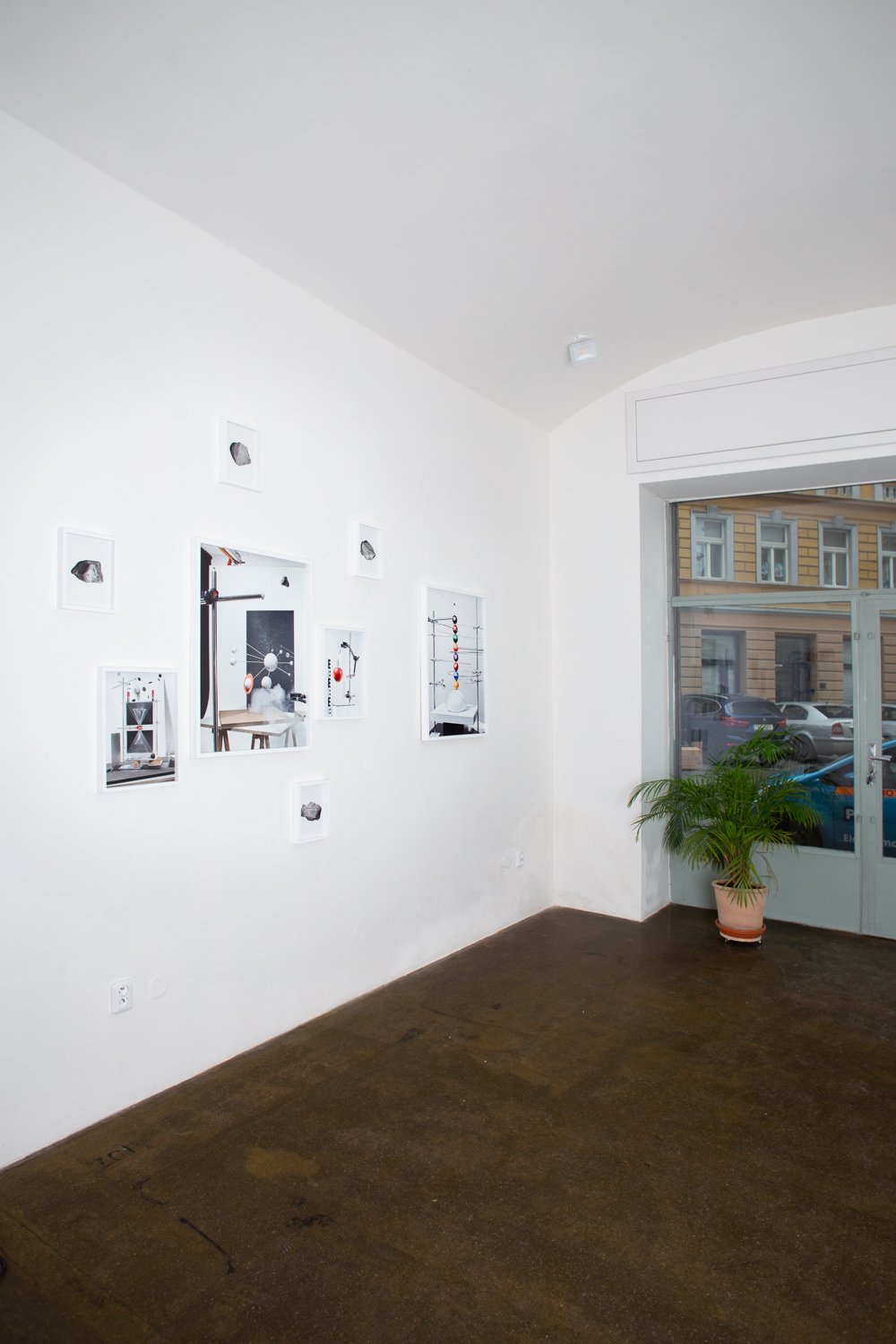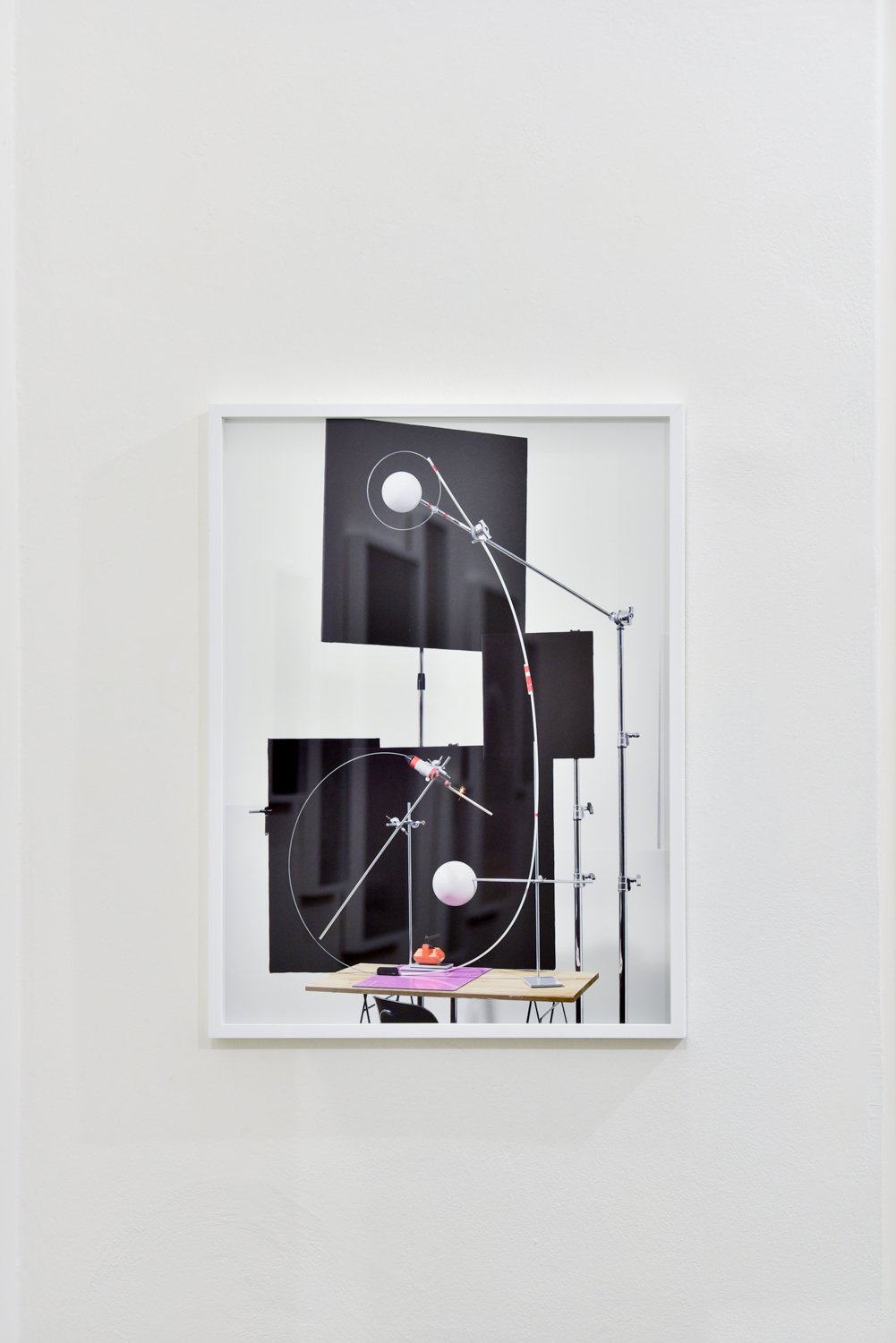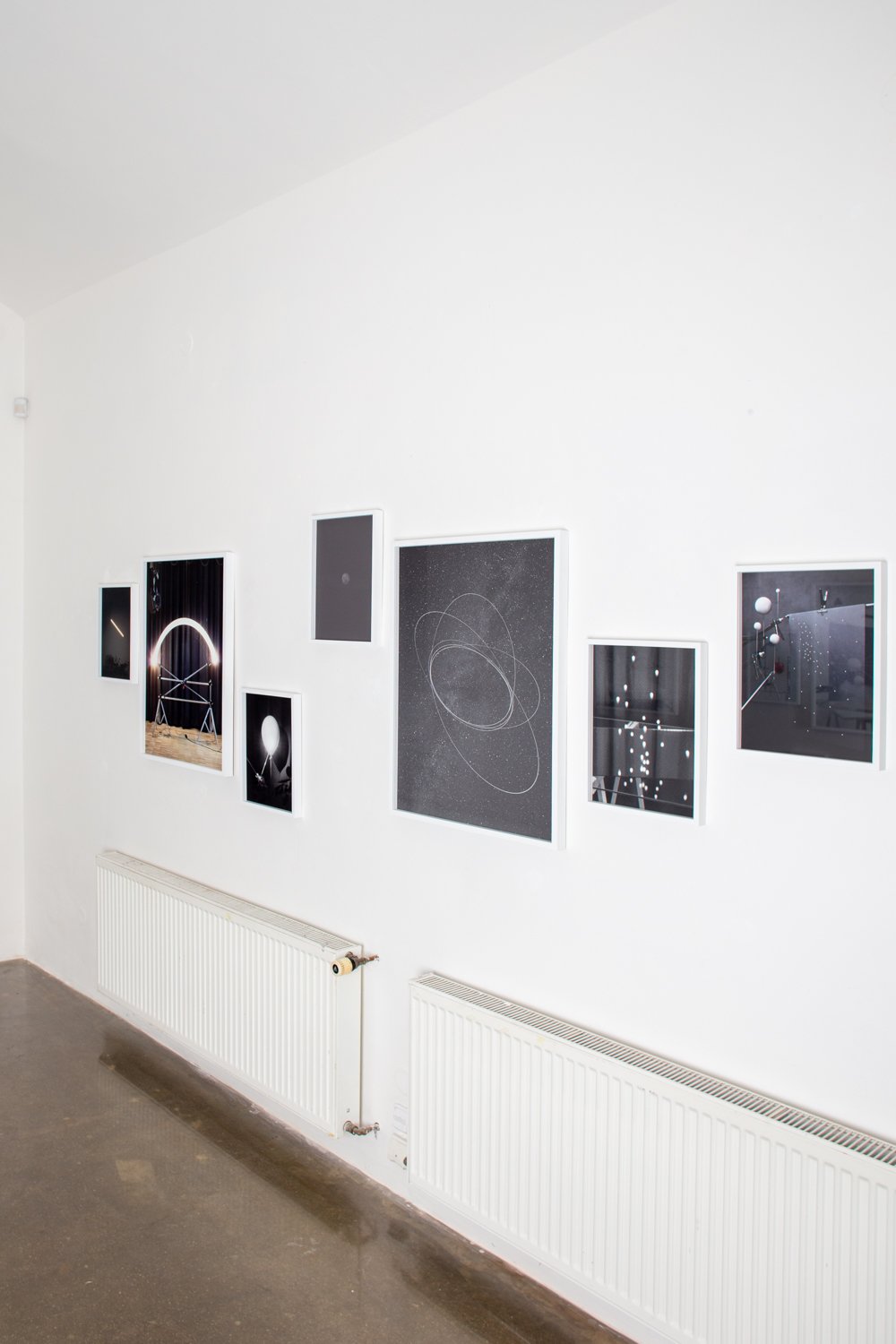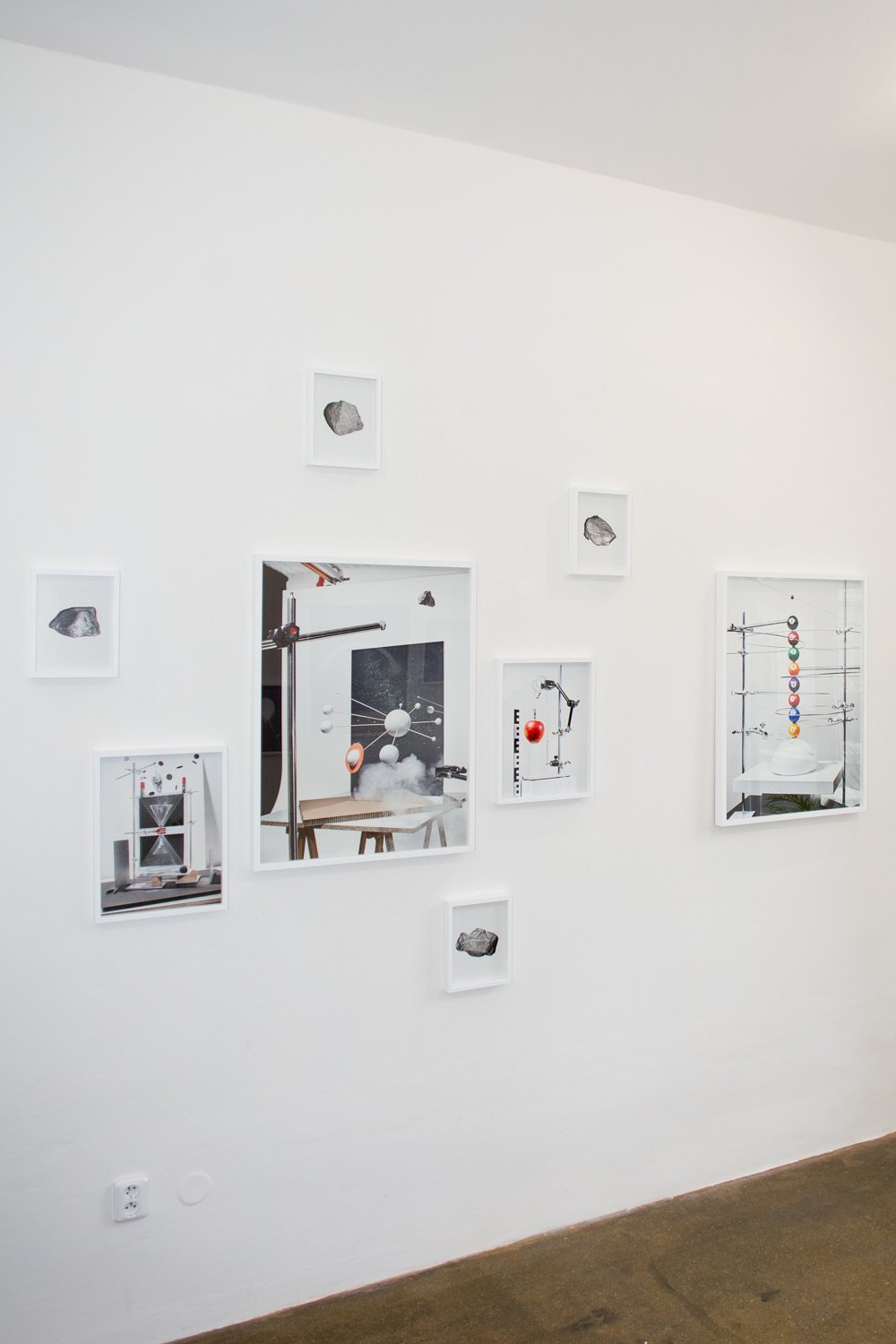Felix Schöppner
Poetics Aesthetics Composition series
HIDDEN Bořivojova
1. 2. / 28. 2. 2022
Felix Schoeppner is a German Photographer, born in the 90’s and raised in south Hesse. Recently focus of his work has shifted to the still life. His images represent the result of a work process in which he combines various techniques and materials into installations. His work impresses with a high degree of stringency and perfection, both in terms of content and implementation. For him, photography is part of a comprehen- sive process in dealing with questions of human perception.
In what way does human sensory perception take place in a high-tech world for connections outside of what is apparently possible?
Perception is first of all the recognition of an object or state in our immediate environment with the help of our 5 senses. With the help of technical devices, we can exceed the limits that are set biologically for us and expand them many times. The perception of such, invisible subjects and states therefore often first takes place in an abstract way with values that are assigned to certain parameters and can be visualized based on this. The clear way of representing values is in a graphic, drawing, or a scaled model. Since size relationships play a decisive role here, in some cases, you are forced to not display the relationships of objects proportionally to one another in order to be able to ensure that they are clearly recognizable. The series “Cognition” deals with this topic by using terms from the fields of physics and astronomy and presenting them in simplified models.
These are the ways we can perceive the world around us today. But to be at this point, it took pioneers who expanded the limits and made them tangible. The first astronauts paved the way for a completely new, undeveloped space. It demanded enormous willpower and fearlessness from them, as they could not foresee whether they would survive their journeys into space.
what does poetics mean to you?
I think that if I didn't take photographs, writing would be the least likely form of expression I would devote myself to. At the same time, I would like to say that I have a very high respect for this form of expression!
Poetics, in my eyes, is very sensitive and emotionally oriented. It is something that only belongs to my strengths to a limited extent, even though I certainly describe myself as an emphatic person. Capturing and reproducing emotions is one of the basic tasks of photography, if not one of its strengths. With the help of this technical medium, emotions can be recorded directly and are not subject to interpretation by the painter in his or her own way, as is the case in paintings, for example. Poetics can create emotions in the readers head with the help of language, which has a lot to do with the choice of words, sentence structure and story line. Poetics thus aims to stimulate the recipient's imagination, since images and ideas always develop in the mind when reading texts.
Even though it is basically in direct contrast to my photography, one can still find parallels. I don't want to explain the world with my pictures, but rather I want to show the viewer what I have imagined about specific issues.
what does aesthetics mean to you?
Aesthetics means perception and/or sensation derived from the ancient Greek and thus concerns all our senses. It is therefore directly related to art and design. For me, the term aesthetics is not the same like beauty, because it describes more than just an external quality. For me, a body of work becomes aesthetic when a content-related aspect is taken up and actively influences the external form in order to develop a sense of meaning. The result is that even a seemingly banal, unspectacular picture can catch my interest if the content has contributed significantly to its creation.
what does composition mean to you?
Composition describes the formal structure of a work and with its help it can be analytically broken down into its individual parts. For me, it is usually derived from the content, as this also determines the formal elaboration. The outer form determines the content, "form follows function" as one of the guiding principles in design and architecture goes.
A composition is made up of a multitude of methods with which the perception - in my case of a photograph - is addressed. Many of the compositional principles are derived from nature. Much of the theory of proportions, perspective, sequences, colour and light can be derived from models in nature, such as the golden section and the Fibonacci sequence derived from it. However, a good composition does not necessarily mean an appealing picture, because it often takes a break with it to get a good picture.
